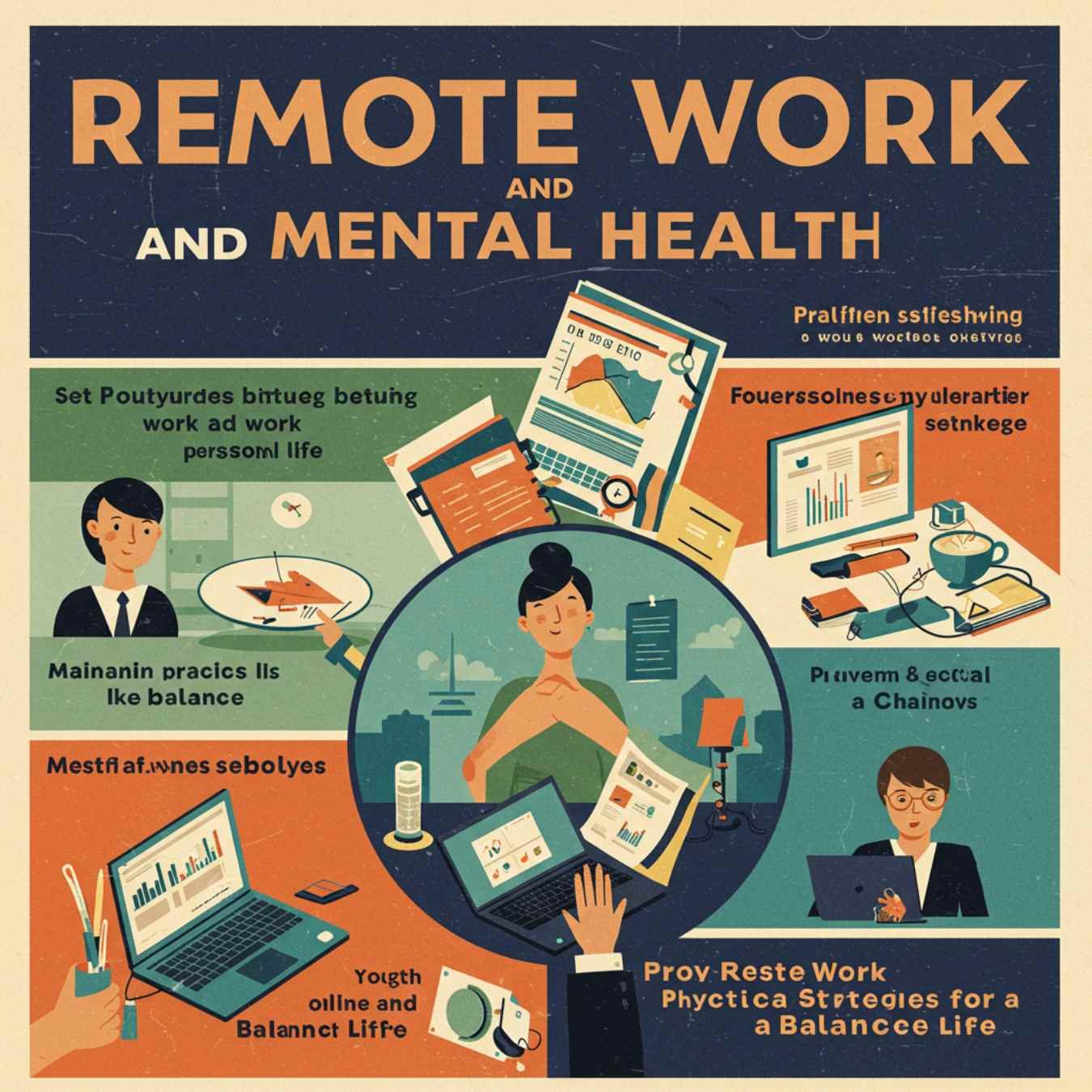Remote Work and Mental Health: Practical Strategies for a Balanced Life

Working from home has opened up a world of possibilities, more flexibility, the freedom to design your day, and access to a broader range of remote jobs. But along with these advantages come new challenges, especially when it comes to mental well-being. Adapting to a remote lifestyle can blur the boundaries between work and home, create a sense of isolation, and throw off the rhythm of daily routines.
Whether you're new to the world of remote work, exploring a work-from-home alternative, or already well-established in full-time remote roles, it’s important to be mindful of how this way of working affects your mental health. Below are some common challenges and simple, practical tips to help make remote work more balanced and sustainable.
Mental Health Challenges in Remote Work
1. Feeling Isolated
One of the biggest downsides of working from home is the lack of in-person interaction. Without casual chats by the coffee machine or spontaneous team lunches, it’s easy to feel a bit disconnected, especially in more solitary roles like writing remote jobs, where there’s little daily collaboration.
2. Work and Home Blending Together
When your kitchen table becomes your office, it’s hard to know when the workday really ends. The lines between personal time and professional responsibilities start to blur, often leading to longer hours and more stress.
3. The Need to Constantly Prove Yourself
Many remote workers feel the pressure to show they’re “always on.” That can lead to overworking, skipping breaks, or pushing through exhaustion, all of which increase the risk of burnout.
4. No Set Routine
Without a commute or office hours to guide your day, routines can easily slip away. That lack of structure can affect your sleep, your energy levels, and your focus.
5. Too Much Screen Time
Working remotely often means spending hours in front of a screen,on video calls, in chats, or managing tasks. After a while, it can wear you down mentally and physically.
Tips for Staying Grounded While Working Remotely
1. Set Boundaries That Work for You
- Try to start and end your workday at the same time each day.
- Create a dedicated workspace, even if it’s just a small corner of your home.
- Turn off work notifications when the day is done, so you can truly unwind.
2. Make Time for Connection
- Catch up with teammates regularly, even if it’s just for a quick chat.
- Get involved in online groups or communities related to your job or interests, this is especially helpful for those in writing remote jobs.
- Don’t be afraid to talk about the challenges you’re facing. You’re likely not alone.
3. Stick to a Simple Routine
- Start your day with something that feels good, stretching, reading, coffee on the balcony.
- Plan out your tasks in blocks and include regular short breaks.
- Step away from the screen once in a while, take a walk, play music, or just rest your eyes.
4. Take Care of Your Mind and Body
- Move your body in a way that feels good, yoga, dancing, walking, anything that gets you going.
- Eat nourishing meals and drink enough water to stay energized.
- Prioritize sleep by keeping a regular bedtime.
- Do something fun or creative that has nothing to do with work.
5. Use Helpful Tools, But Don’t Overdo It
- There are simple tools out there that can help with focus and time management, use them to stay on track, but avoid overloading your day with too many apps.
- Make sure to take regular breaks from screens and give your brain a rest.
- If you find meditation or breathing apps helpful, use them when you need to slow down or reset.
6. Get Out When You Can
- If you’re feeling cooped up, consider working from a café or a shared space now and then.
- Meet up with friends or attend local events to add some real-world connection to your week.
- Volunteering or joining a local hobby group can be a great way to feel part of something bigger.
7. Don’t Hesitate to Get Support
If stress or low mood sticks around, it might be time to talk to a professional. There’s nothing wrong with asking for help, taking care of your mental health is part of taking care of your career.
What Employers Can Do to Help
Companies play a big role in supporting remote workers. Here are some ways they can help make remote work healthier:
- Keep the conversation open, regular check-ins go a long way.
- Offer access to wellness resources, such as counseling services or mental health days.
- Let people work more flexibly when needed, it helps reduce stress and builds trust.
- Plan ways for teams to connect outside of work tasks, whether online or in person.
- Celebrate wins and milestones to help everyone feel seen and appreciated.
Moving Forward
Remote work is here to stay, and that’s a good thing, when it’s done right. By recognizing the challenges, creating healthy routines, and leaning into support systems, we can all build a better version of remote life. Whether you’re trying out a work-from-home alternative or helping lead a remote team, it’s not just about where we work, it’s about how we take care of ourselves and each other.
